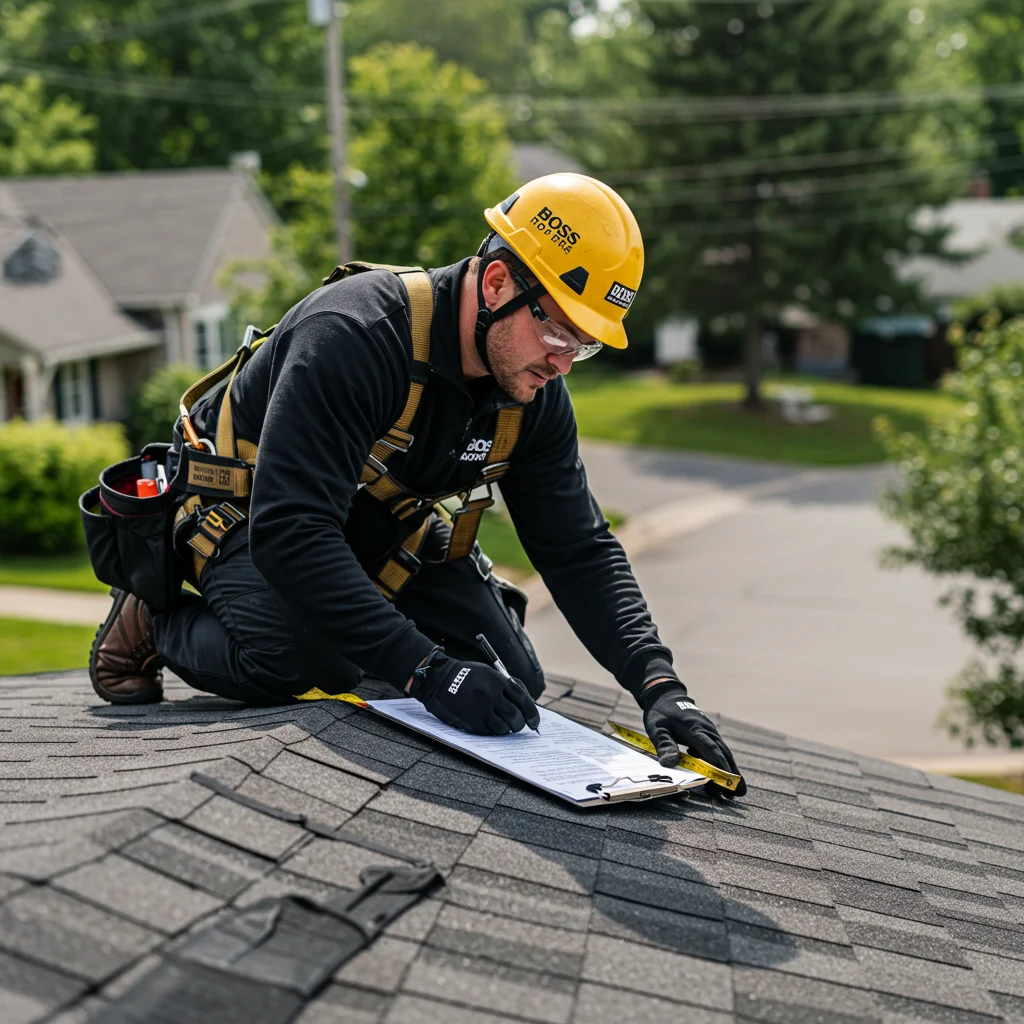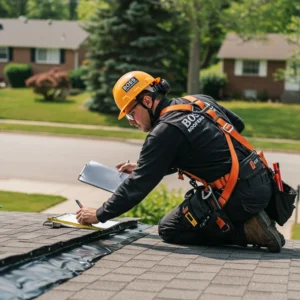Do Roofers Need a License?
Learn why hiring a licensed roofer matters for your home's safety, legal protection, and quality results.

Why Roofing Licenses Matter for Homeowners
Roofing licenses help protect your home and money. When a roofer is licensed, it means they passed tests, showed roofing work experience, and followed safety rules. A licensed roofing contractor follows building codes and meets industry standards. This helps make sure your roof is installed the right way. Licensing also helps stop bad work and protects you from legal trouble. Hiring a roofer with the right license keeps your project safe and legal. It also gives you peace of mind, knowing you chose a trusted professional.
Understanding State and City-Level Roofer Licensing Laws
Roofers need different licenses depending on where they work. Some states and cities require both a state roofing license and a city-level roofer license. These rules come from the State Licensing Board or the Department of Consumer Affairs. Residential roofing licenses and commercial roofing licenses may have different requirements. A licensed contractor may also need to take a roofer trade exam to prove their skills. Licensing reciprocity agreements help roofers work in more than one state. Always check what type of license your roofer needs before the job starts.
How to Get a Roofing Contractor License
To get a license, roofers must apply through a contractor licensing office. They may need a high school diploma or equivalent, proof of work experience, and pass a residential roofer trade exam. Some states ask for continuing education, safety training, and proof of insurance. The contractor application process includes paying licensing fees and showing they meet state laws. Certification from a roofing contractor association helps too. Apprenticeship programs give hands-on training to new roofers. Getting licensed shows the roofer is serious about quality and safety.
Contents
- Why Roofing Licenses Matter for Homeowners
- Understanding State and City-Level Roofer Licensing Laws
- How to Get a Roofing Contractor License
- Insurance and Bonding Requirements for Licensed Roofers
- What Happens If You Hire an Unlicensed Roofer
- How to Check if Your Roofing Contractor Is Licensed and Insured
- The Role of Licensing in Roofing Quality, Safety, and Compliance
- Why Hiring a Licensed Roofer Protects Your Roof Installation Investment ?
Insurance and Bonding Requirements for Licensed Roofers
Roofers must have the right insurance to protect homes and workers. General liability insurance covers damage to property. Workers' compensation insurance helps if someone gets hurt. Surety bonds and umbrella insurance offer extra financial protection. A licensed roofing contractor needs to show proof of insurance during the project. You can ask for their insurance certificate to verify coverage. Insurance helps if there is an accident, mistake, or delay. It also protects against lawsuits. Without insurance, you may be stuck paying for damages or injuries.
What Happens If You Hire an Unlicensed Roofer
Hiring an unlicensed roofer can lead to big problems. You could face legal issues if the roofer doesn’t follow building codes. An unlicensed roofer might do poor work or leave the job unfinished. There’s also a risk of injury liability if a worker gets hurt. Your roofing warranties might become invalid if the installer isn’t licensed. You might end up paying more to fix bad work or complete the job. Roofing contractor registration ensures they’re qualified. Avoid financial headaches by choosing a licensed and insured pro.
How to Check if Your Roofing Contractor Is Licensed and Insured
It’s easy to check if your roofer has the right license and insurance. Ask for their license number and verify it using online license verification tools. Use state contractor license databases or call the Department of Consumer Affairs. Make sure they have up-to-date insurance and ask to see the insurance certificate. You can also check if they belong to a roofing contractor association. Look at contractor credential checklists and customer reviews. A licensed roofing contractor should never hide this info. Always double-check before work begins.
The Role of Licensing in Roofing Quality, Safety, and Compliance
Licensing improves roofing safety, quality, and legal compliance. Licensed roofers know about construction law, building codes, and safety regulations. They get roofing training certification and follow ethical construction practices. A licensed roofer is more likely to meet manufacturer specs, which helps keep your warranty valid. Licensing also helps reduce the risk of workplace injury and poor workmanship. Homeowners get better results from certified contractor licenses. Following the rules means your roofing project stays on track and safe.
Why Hiring a Licensed Roofer Protects Your Roof Installation Investment
Your roof is a big investment, so protect it by hiring a licensed pro. Whether you need roof installation, replacement, or repair , using a licensed roofer gives you peace of mind. They bring hands-on experience, training, and insurance to every job. This lowers the chance of mistakes, delays, or lawsuits. A standing seam metal roof or aluminum metal roofing system must meet high standards. Licensed contractors follow those standards closely. You get quality work, fewer risks, and a job done right the first time.

Do Roofers Need a License?
Premium Roofing Solutions Blog Do Roofers Need a License? Learn why hiring a licensed roofer matters for your home’s safety, legal protection, and quality results.
